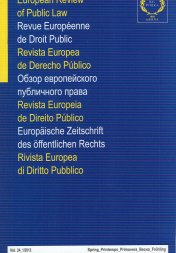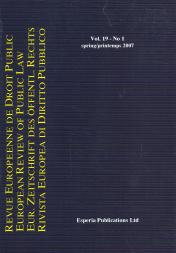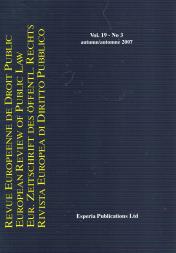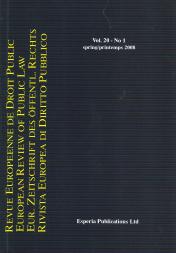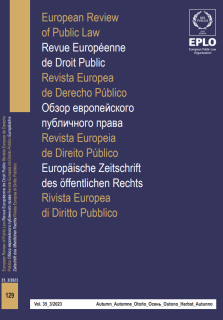
Administrative Law / Droit administratif
United Kingdom / Royaume-Uni
Hayley J. Hooper
Associate Professor of Law, Harris Manchester College, University of Oxford
This chronicle tracks important developments in Administrative Law in the United Kingdom in 2022. The theme which unites the cases considered here is their treatment of claims regarding the presence of constitutional principles in the common law. Each claim regarding a breach of common law norms occurs in the context of an overarching claim that the executive has exceeded the powers lawfully conferred upon it by an Act of Parliament. The constitutional principles at issue are, the principle of legality, trust as a constitutional principle, and the right to notice (a key aspect of the law on fair procedures). The recent decisions of the UK Supreme Court in R (O and Project for Registration of Children as British Citizens) v Home Secretary and R (Coughlan) v Cabinet Office raise important issues about the proper ambit of the principle of legality, the right to citizenship, and the right to vote, in UK administrative law. In Craig v Her Majesty’s Advocate the UK Supreme Court emphasised the binding nature of judicial remedies upon the executive as a core element of the constitutional settlement. Failure to acknowledge this breached the core constitutional principle of trust which was a necessary, if latent, feature of the British constitutional settlement. In the Court of Appeal, the decision of D4 v Home Secretary reaffirms the right to notice as a central feature of the common law in the context of deprivation of citizenship. The discussion begins with a consideration of the principle of legality. Section 2 considers how the constitutional principle of trust mediates the relationship between the executive and public law remedies. Finally, section 3 considers the importance of the right to notice as a wider subset of fair procedures.
Cette chronique retrace les développements importants du droit administratif au Royaume-Uni en 2022. Le thème qui unit les affaires examinées ici est le fait qu’elles traitent de demandes concernant la présence de principes constitutionnels dans le common law. Chaque demande concernant une violation des normes de common law s’inscrit dans le contexte d’une demande globale selon laquelle l’exécutif a outrepassé les pouvoirs qui lui ont été légalement conférés par une loi du Parlement. Les principes constitutionnels en question sont le principe de légalité, la confiance en tant que principe constitutionnel et le droit de notification (un aspect clé de la loi sur les procédures équitables). Les arrêts récents de la Cour suprême du Royaume-Uni dans les affaires R (O and Project for Registration of Children as British Citizens) v Home Secretary et R (Coughlan) v Cabinet Office soulèvent des questions importantes sur la portée du principe de légalité, du droit à la citoyenneté et du droit de vote en droit administratif britannique. Dans l’affaire Craig v Her Majesty’s Advocate, la Cour suprême du Royaume-Uni a souligné la nature contraignante des recours judiciaires pour l’exécutif en tant qu’élément central du règlement constitutionnel. Le fait de ne pas le reconnaître a constitué une violation du principe constitutionnel fondamental de la confiance, qui était une caractéristique nécessaire, bien que latente, du règlement constitutionnel britannique. Devant la Cour d’appel, l’arrêt D4 v Home Secretary réaffirme que le droit de notification est un élément central du common law dans le contexte de la privation de la citoyenneté. La discussion commence par un examen du principe de légalité. La section 2 examine la manière dont le principe constitutionnel de la confiance sert de médiateur à la relation entre l’exécutif et les recours de droit public. Enfin, la section 3 examine l’importance du droit de notification en tant que sous-ensemble plus large de procédures équitables.
* Thank you to Menelaos Markakis for comments. All errors and omissions remain the fault of the author.













